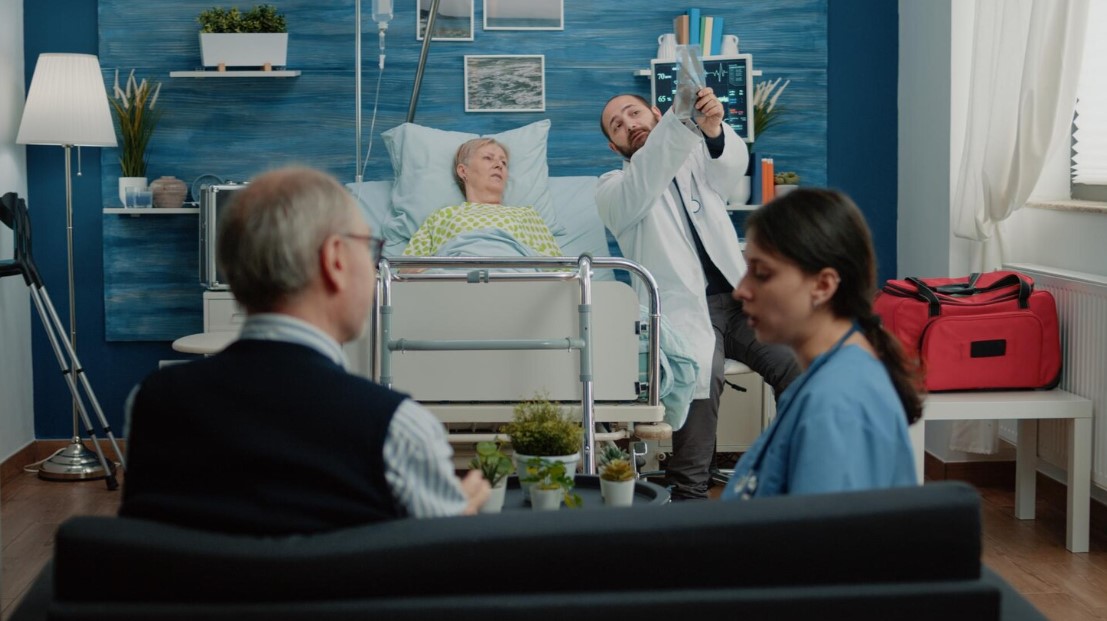22
Nov 2025
Putting People with Dementia at the Center: A New Paradigm in Aged Care
Published in News on November 22, 2025

In a powerful shift in aged care thinking, new research is placing people living with dementia at the heart of decision-making. Rather than being passive recipients of care, those with lived experience are now helping to shape policies, training, and service systems that affect their lives.
A Fragmented System Gets a Human Touch
Theresa Flavin, diagnosed with younger-onset dementia, has long been an advocate for better aged-care practices. When she first became involved, she was struck by how disconnected the support network felt. “It felt like the system was built around us, not for us,” she said — a sentiment echoed by many others living with dementia.
Now, as a Lived Experience Dementia Consultant on a pioneering UNSW project, Theresa is helping to reimagine how care decisions are made. The initiative, led by Dr Craig Sinclair from UNSW’s School of Psychology, seeks to implement a model of supported decision-making, rather than the traditional risk-averse substitute decision-making.
From Consultation to Co-Design
A key strength of this research lies in its co-design framework. Instead of simply asking people with dementia for feedback, they are deeply involved in shaping programs — from policy ideas to staff training tools. Ms Flavin leads a working group made up of individuals who have experienced dementia or aged-care services, helping to refine the very materials that workers will use.
“This group is our laboratory,” says Dr Sinclair, explaining how their input holds researchers accountable and ensures that the work remains grounded in real human experience.
Shifting Toward Rights-Based Care
The project aligns directly with upcoming changes in Australia’s aged care legislation. New standards introduced under the Aged Care Act emphasise a person’s right to independence, choice, quality care, privacy, and social connection.
Historically, care models often prioritised safety and risk avoidance — but the UNSW initiative argues for something deeper: “It’s about enabling people to live well with dementia, not just keeping them safe,” Dr Sinclair explains.
Training the Workforce for Real Change
To make this vision practical, the project focuses on training aged-care workers who actually care for people with dementia or acquired disabilities. The idea is not only to build knowledge but to shift mindsets — helping staff understand that supporting decision-making isn’t just about limiting harm, but about respecting personhood.
Ms. Flavin strongly believes that families, too, must unlearn the idea that they should always make decisions for their loved ones. With better training, family caregivers may come to understand that support — not substitution — is the way forward.
Why This Matters — Even in Hospital Stays
Though the project is rooted in aged-care settings, its implications extend to hospital stays too. People with dementia are known to spend more time in hospital than those without the condition, often due to their complex needs.
Research also shows that hospital environments can feel alienating to those with dementia: confusing layouts, clinical routines, and limited communication contribute to distress. By embedding co-designed, person-centred care approaches — the same principles being developed in the UNSW project — hospitals could become more supportive and less disorienting for dementia patients and their caregivers.
A Global Movement, a Local Revolution
The shift underway in Australia mirrors an international movement toward recognising the rights of older adults. UNSW’s work resonates with global conversations like the United Nations’ push for a convention on the rights of older people.
Theresa Flavin’s message is simple but profound: “Support means seeing the person, not the diagnosis. Rights don’t disappear with age or illness.”
Looking Ahead: Trials and Real-World Impact
The research team plans to pilot their training modules with partner aged-care organisations soon. Through these trials, they hope to embed a model of care that values autonomy, respect, and lived experience.
If successful, the project could reshape not only how care is delivered, but how people with dementia are treated — not as passive recipients of support, but as active participants in designing their own care journeys.
By centring people with dementia in the development of care systems, this initiative challenges old assumptions and opens the door to more respectful, effective, and rights-based aged care.









